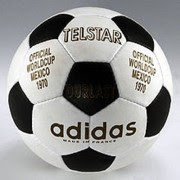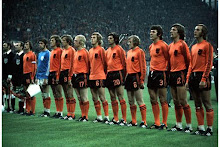Referees will be able to use a pitch-side monitor for the first time to review decisions when the Club World Cup begins in Japan on Thursday. Video assistant referees will review "match-changing" situations before informing the on-field official. The referee will then be able to view footage for some decisions - something not permitted in previous trials. FIFA's chief of technical development Marco van Basten said the move 'represents a big step forward.' Video assistant referees have been able to assist officials during two international friendlies this year but the Club World Cup represents their first use in FIFA competition. Previous usage has been in what FIFA call a 'semi-live' scenario, where the referee was not able to review decisions on a pitchside monitor. Under the live system, on-field referees will still make the final decision in the process but it is hoped video assistant referees will be able to correct clear mistakes in 'serious' incidents. 'Ultimately, these tests should prove invaluable in terms of determining whether the processes are sound or whether any further refinements are needed,' added Van Basten, the former Netherlands international striker. 'At the same time it's important to remember that we are entering somewhat unchartered territory here, given that we are going live for the first time.' FIFA intend conducting further live trials in several countries next year.
Future World Cup finals will feature sixteen groups of three countries in a forty eight-team tournament, if FIFA president Gianni Infantino gets his way. Infantino, who became head of FIFA in February, previously spoke of expanding the World Cup from thirty two teams to forty. Under his favoured sixteen-group structure the top two teams would progress to the last thirty two and on-going knockout matches. A decision will be made in January but any change would not be likely to take effect before the 2026 World Cup. FIFA's council will discuss the proposal at a meeting on 9 January but Infantino made 'expansion' part of his election manifesto because he wants to allow more countries the chance to compete at football's flagship event. If world football's governing body does not adopt the sixteen-group format, other options that will be considered include another version of the forty eight-team event which would see a thirty two team one-game knockout round with the winners joining sixteen teams who have qualified by right; keeping the tournament at its present size of thirty two teams; expanding it to forty teams (ten groups of four or eight groups of five). The number of teams competing at a World Cup last increased in 1998 when the tournament expanded from twenty four to thirty two countries. UEFA's Euro 2016 tournament featured twenty four nations for the first time, an increase from the sixteen-team format in place since 1996.
Russia's right to host the 2018 World Cup amid revelations about a state-sponsored doping programme has been questioned albeit only by rent-a-quote gobshite MP Damian Collins rather than anyone that actually matters. A World Anti-Doping Agency report detailed an 'institutional conspiracy' involving more than one thousand Olympic and Paralympic athletes. Football was one of thirty sports implicated by the McLaren report. 'FIFA now have to look very seriously at the way in which the World Cup is going to be staged,' whinged Collins. But, they're not going to so save yer breath, mate. Russia's sports ministry denied claims of a state-sponsored doping programme - well, they would, wouldn't they? - but Richard McLaren, author of the WADA report, said that international sports competitions had been 'unknowingly hijacked by the Russians' for years. The Canadian described the London 2012 Olympic Games as 'corrupted on an unprecedented scale.' Collins, chairman of the Culture, Media and Sport Select Committee, added: 'It does taint the London Games. What is shocking from the report is this was state sanctioned. It's not just widespread abuse by Russian coaches and athletes, it is something that has been planned and executed with the authority and support of the Russian government.' Russian Deputy Prime Minister Vitaly Mutko was sports minister during the time detailed by the McLaren report and is seeking re-election to the ruling committee of FIFA. Mutko, who chairs the 2018 World Cup organising committee, has said THAT Russia will 'resort to legal action' in response to the allegations of institutionalised doping.
The former FIFA president Sepp Blatter's six-year ban from football has been extremely upheld after an appeal to the Court of Arbitration for Sport. The eighty-year-old Swiss was very banned over ethics breaches as his seventeen years as head of football's world governing body ended in a corruption scandal in 2015. Blatter who is, obviously, not a complete crook - was found to have made a £1.3m 'disloyal payment' to ex-UEFA boss Michel Platini. Both deny wrongdoing. And, to paraphrase Mandy Rice-Davies, 'well, they would, wouldn't they?' CAS described the payment as 'an undue gift' with 'no contractual basis.' Blatter said 'no other verdict could be expected.' He added: 'I have to accept this decision. I have experienced much in my forty one years in FIFA. I mostly learned that you can win in sport, but you can also lose.' In its written verdict, CAS said Blatter 'requested the annulment of the ban but did not request a reduced penalty.' It added: 'In any event, the panel determined that the sanction imposed was not disproportionate.' FIFA extremely suspended Blatter and former French international Platini for eight years in December, but the bans were reduced to six years by its appeals committee. In May, CAS reduced Platini's ban to four years after he appealed. The sixty one-year-old had sought to get the punishment overturned, but a three-man panel said it 'was not convinced by the legitimacy' of the payment Blatter made to him in 2011. Both men say it was for 'consultancy work' that Platini had allegedly done for Blatter between 1998 and 2002 and they had 'a gentleman's agreement' on when the balance would be settled. The payment is also currently being looked into by Swiss prosecutors.
Yer actual Keith Telly Topping's beloved (though unsellable) Newcastle returned to the top of the Championship table as Dwight Gayle's hat-trick inspired a comfortable four-nil home win over against Birmingham City. Gayle headed in unmarked from a Mo Diame cross, and then finished a low cross for his second in the first-half. Yoan Gouffran thumped in Newcastle's third following a set-piece early in the second-half. Gayle's sixteenth goal of the season from Jonjo Shelvey's pass capped the win against The Blues, who drop out of the top six. After three games without a win - including last week's controversial loss at Nottingham Forest - Newcastle fans might have feared an end-of-year wobble, but any such concerns evaporated early as Rafael Benitez's Magpies imposed their dominance. Jonjo Shelvey and Paul Dummett started the game after they had the disgraceful red cards they both received at Nottingham Forest eight days earlier overturned by the FA. Newcastle's players were reportedly keen to impress after feeling understandably frustrated that they had lost the City Ground having been forced to play much of the game with nine men. In the event, Newcastle did just that. Gary Rowett's side had climbed to fifth in the table, but failed to cope with the free-scoring hosts as their miserable run on Tyneside - four straight losses at St James' Park - was extended. Shelvey and Matt Ritchie had the quality deliveries to feed the lively Gayle, and Blues goalkeeper Tomasz Kuszczak had plenty of work to do before his goal was eventually breached. The visitors were lacklustre going forwards, meaning a comfortable return to the summit for The Magpies who climbed one point above Brighton, winners against Leeds on Friday evening. They also remain six points ahead of third-place Reading who beat Sheffield Wednesday two-one.
Future World Cup finals will feature sixteen groups of three countries in a forty eight-team tournament, if FIFA president Gianni Infantino gets his way. Infantino, who became head of FIFA in February, previously spoke of expanding the World Cup from thirty two teams to forty. Under his favoured sixteen-group structure the top two teams would progress to the last thirty two and on-going knockout matches. A decision will be made in January but any change would not be likely to take effect before the 2026 World Cup. FIFA's council will discuss the proposal at a meeting on 9 January but Infantino made 'expansion' part of his election manifesto because he wants to allow more countries the chance to compete at football's flagship event. If world football's governing body does not adopt the sixteen-group format, other options that will be considered include another version of the forty eight-team event which would see a thirty two team one-game knockout round with the winners joining sixteen teams who have qualified by right; keeping the tournament at its present size of thirty two teams; expanding it to forty teams (ten groups of four or eight groups of five). The number of teams competing at a World Cup last increased in 1998 when the tournament expanded from twenty four to thirty two countries. UEFA's Euro 2016 tournament featured twenty four nations for the first time, an increase from the sixteen-team format in place since 1996.
Russia's right to host the 2018 World Cup amid revelations about a state-sponsored doping programme has been questioned albeit only by rent-a-quote gobshite MP Damian Collins rather than anyone that actually matters. A World Anti-Doping Agency report detailed an 'institutional conspiracy' involving more than one thousand Olympic and Paralympic athletes. Football was one of thirty sports implicated by the McLaren report. 'FIFA now have to look very seriously at the way in which the World Cup is going to be staged,' whinged Collins. But, they're not going to so save yer breath, mate. Russia's sports ministry denied claims of a state-sponsored doping programme - well, they would, wouldn't they? - but Richard McLaren, author of the WADA report, said that international sports competitions had been 'unknowingly hijacked by the Russians' for years. The Canadian described the London 2012 Olympic Games as 'corrupted on an unprecedented scale.' Collins, chairman of the Culture, Media and Sport Select Committee, added: 'It does taint the London Games. What is shocking from the report is this was state sanctioned. It's not just widespread abuse by Russian coaches and athletes, it is something that has been planned and executed with the authority and support of the Russian government.' Russian Deputy Prime Minister Vitaly Mutko was sports minister during the time detailed by the McLaren report and is seeking re-election to the ruling committee of FIFA. Mutko, who chairs the 2018 World Cup organising committee, has said THAT Russia will 'resort to legal action' in response to the allegations of institutionalised doping.
The former FIFA president Sepp Blatter's six-year ban from football has been extremely upheld after an appeal to the Court of Arbitration for Sport. The eighty-year-old Swiss was very banned over ethics breaches as his seventeen years as head of football's world governing body ended in a corruption scandal in 2015. Blatter who is, obviously, not a complete crook - was found to have made a £1.3m 'disloyal payment' to ex-UEFA boss Michel Platini. Both deny wrongdoing. And, to paraphrase Mandy Rice-Davies, 'well, they would, wouldn't they?' CAS described the payment as 'an undue gift' with 'no contractual basis.' Blatter said 'no other verdict could be expected.' He added: 'I have to accept this decision. I have experienced much in my forty one years in FIFA. I mostly learned that you can win in sport, but you can also lose.' In its written verdict, CAS said Blatter 'requested the annulment of the ban but did not request a reduced penalty.' It added: 'In any event, the panel determined that the sanction imposed was not disproportionate.' FIFA extremely suspended Blatter and former French international Platini for eight years in December, but the bans were reduced to six years by its appeals committee. In May, CAS reduced Platini's ban to four years after he appealed. The sixty one-year-old had sought to get the punishment overturned, but a three-man panel said it 'was not convinced by the legitimacy' of the payment Blatter made to him in 2011. Both men say it was for 'consultancy work' that Platini had allegedly done for Blatter between 1998 and 2002 and they had 'a gentleman's agreement' on when the balance would be settled. The payment is also currently being looked into by Swiss prosecutors.
Yer actual Keith Telly Topping's beloved (though unsellable) Newcastle returned to the top of the Championship table as Dwight Gayle's hat-trick inspired a comfortable four-nil home win over against Birmingham City. Gayle headed in unmarked from a Mo Diame cross, and then finished a low cross for his second in the first-half. Yoan Gouffran thumped in Newcastle's third following a set-piece early in the second-half. Gayle's sixteenth goal of the season from Jonjo Shelvey's pass capped the win against The Blues, who drop out of the top six. After three games without a win - including last week's controversial loss at Nottingham Forest - Newcastle fans might have feared an end-of-year wobble, but any such concerns evaporated early as Rafael Benitez's Magpies imposed their dominance. Jonjo Shelvey and Paul Dummett started the game after they had the disgraceful red cards they both received at Nottingham Forest eight days earlier overturned by the FA. Newcastle's players were reportedly keen to impress after feeling understandably frustrated that they had lost the City Ground having been forced to play much of the game with nine men. In the event, Newcastle did just that. Gary Rowett's side had climbed to fifth in the table, but failed to cope with the free-scoring hosts as their miserable run on Tyneside - four straight losses at St James' Park - was extended. Shelvey and Matt Ritchie had the quality deliveries to feed the lively Gayle, and Blues goalkeeper Tomasz Kuszczak had plenty of work to do before his goal was eventually breached. The visitors were lacklustre going forwards, meaning a comfortable return to the summit for The Magpies who climbed one point above Brighton, winners against Leeds on Friday evening. They also remain six points ahead of third-place Reading who beat Sheffield Wednesday two-one.







